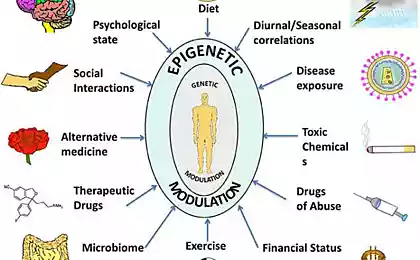933
Household chemicals lead to obesity and diabetes

For the production of food packages and containers, using chemicals such as pesticides, coloring agents, flame retardants, oil and polymers. The report, titled "The scientific study of the effect of chemicals on the risk of obesity and diabetes in humans," written by two scientists from the University of North Carolina and Kyungpook National University in South Korea, including 240 research papers.
Scientists say that chemicals accumulate in the human body, suppressing the work of hormones, decreased appetite, and slow down the rate of fat burning.
Director Chem Trust (company financed by Greenpeace and the World Wildlife Fund) Elizabeth Salter Green said: "If exposure to chemicals, disrupting hormones, programming us to be fat, health policy must take the necessary measures. Obesity and diabetes are examples of negative trends in health status associated with disruption of the endocrine system, which must be urgently addressed.
Now we are talking about prevention, not treatment. Chem Trust calls on the UK government and the EU to urgently take all necessary measures to identify the hormone disruptors, chemicals are suspected in the development of diabetes and obesity, have been replaced with safer alternatives ».
Co-author of the report, Professor Mikuel Port Graduate School of Public Health at the University of North Carolina, said: "The epidemic of obesity and diabetes is a major concern. The problem of disruption of hormones should be urgently solved. The number of chemicals, poisons the human body is very significant.
We must encourage the new policy, which helps to minimize the impact of all relevant hormone disruptors on humans, especially women planning pregnancy, as the fetus develops in utero, most at risk ».
However, independent experts believe that the study was inconclusive, and the best way to reduce the risk of obesity and type 2 diabetes is the promotion of a healthy lifestyle, and food restrictions.
Dr. Ian Frame, director of research at Diabetes UK, said: "We welcome the publication of this report, but it should be stressed that the impact of chemicals on obesity and diabetes is a complex subject for research, resulting in our understanding of this issue is very limited. Simply put, we do not know whether there is a link between certain chemicals to obesity and diabetes.
But even if there is a real bond, the effect of chemical substances in our food is likely to be much smaller than the number of calories therein. It is clear that eating high-calorie foods and beverages increase the risk of overweight, and this, in turn, increases the risk of type 2 diabetes and other chronic diseases.
Do not take this report very seriously, the best way to maintain a healthy weight and reduce the risk of developing type 2 diabetes is to limit the number of calories in your diet, and regular exercise »
Professor Richard Sharpe of the Medical Research Center of Reproductive Health, University of Edinburgh, said: "Today there is no direct evidence that the chemicals are actually the cause of obesity or type 2 diabetes, but poor diet and overeating can cause this.
Common sense tells all of us that eating the wrong foods and too much food will lead to obesity and then to diabetes type 2, etc.
Evidence of experimental studies on animals are dubious at best, and in any case it is difficult to transfer them to people "























